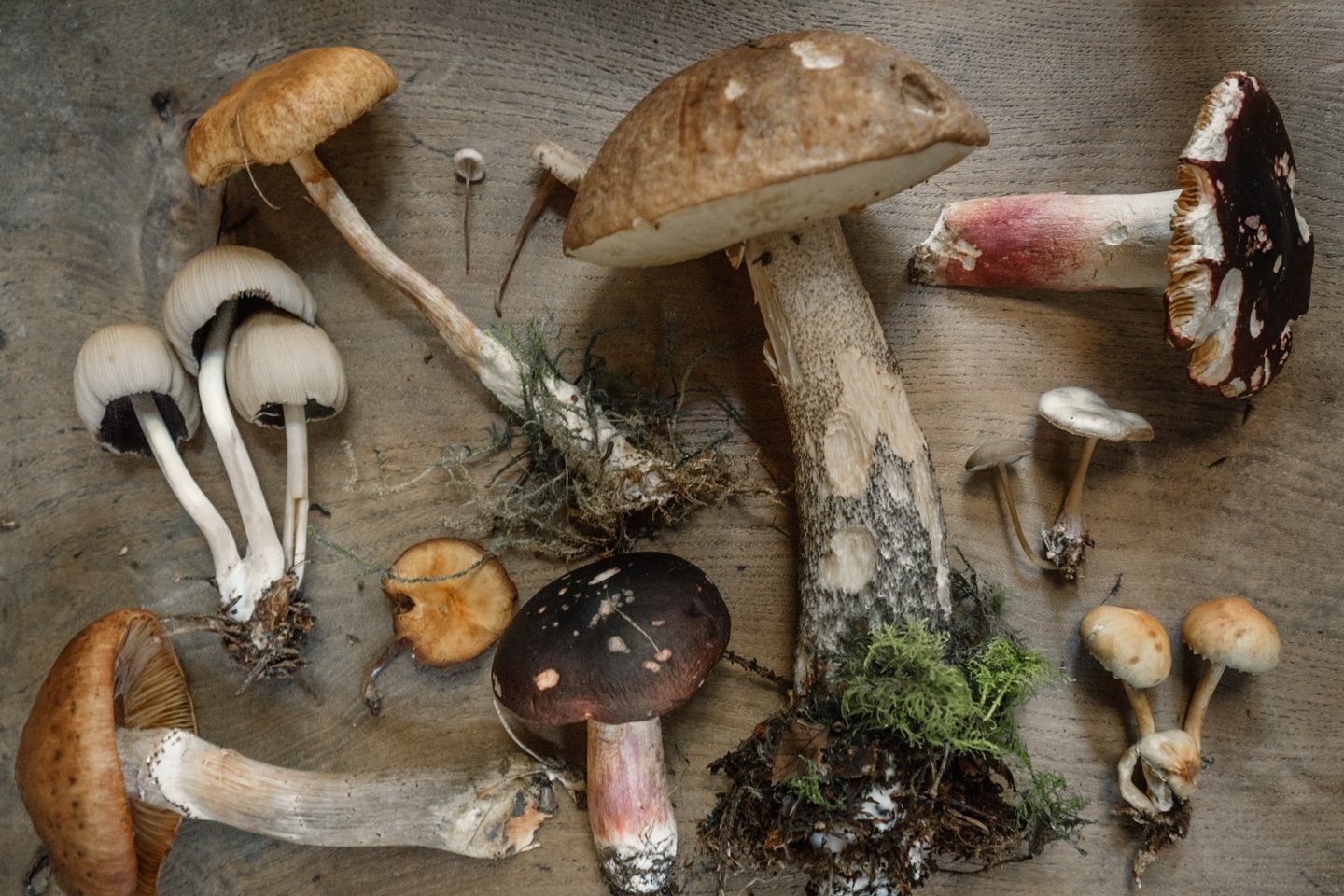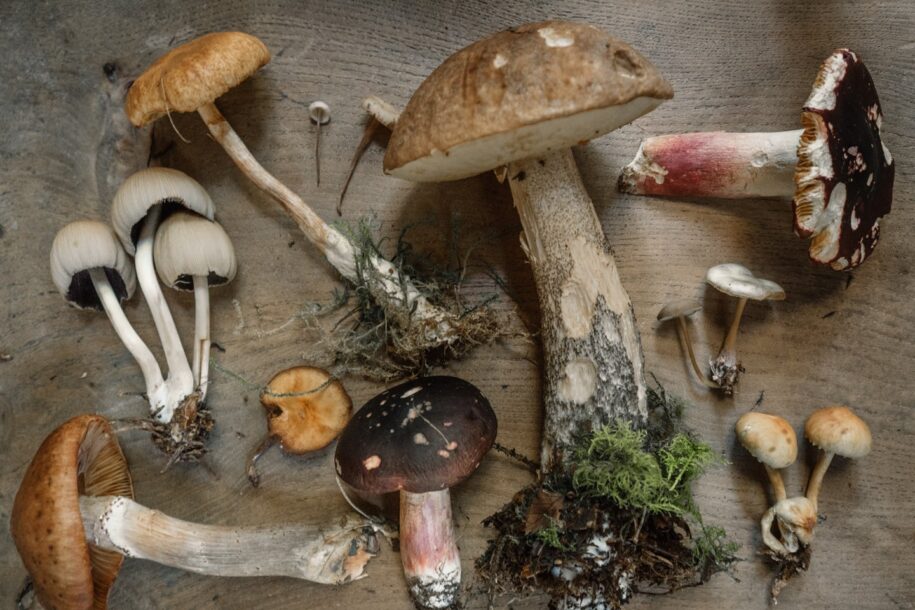How to Support Your Immune System with Medicinal Mushrooms

Mushrooms are nature’s miniature pharmaceutical factories and have been used by our ancestors as medicine for thousands of years (1).
Medicinal mushrooms are a kingdom of fungi found in various parts of the world that have been used to support health through their immunomodulatory properties (2). They are thought to possess approximately 130 medicinal functions, including antitumor, antioxidant, radical scavenging, cardiovascular, anti-hypercholesterolemic, antiviral, antibacterial, antiparasitic, antifungal, detoxification, hepatoprotective, and antidiabetic effects (3).
There are a variety of ways mushrooms support immune health. Certain mushrooms may positively influence the gut microbiota, improving protection against pathogens (4). Several mushrooms have been shown to support immune health by enhancing the innate and adaptive immune responses (5) while others may suppress the immune response, thereby exerting anti-allergic effects (6).
Let’s explore five medicinal mushrooms and the benefits each boasts when it comes to your immune system!
REISHI
Reishi mushroom is a fungus that holds an important place in the traditional medical systems of China, Japan, Korea, and other Asian countries for its health-promoting effects. It is used to increase strength and stamina, boost the immune system, and lower cholesterol (7). It also has adaptogenic properties that can help manage stress, improve sleep, and lessen fatigueHow does sleep deprivation sabotage your health?
The symptoms of sleep deprivation are wide-reaching and they affect all aspects of a woman’s health, including her nutritional well-being.
Clinical symptoms include longer reaction times, distractedness, disturbances in attention and concentration, forgetting known facts, difficulty in memorizing new information, and making mistakes and omissions (5).
Higher levels of stress are observed in sleep-deprived individuals, leading to increased tiredness, drowsiness, and irritability. Work effectiveness decreases and motivation usually falls. Reasoning slows down not only during the night of sleep deprivation but also on the following day (6).
Sleep deprivation may also play a role in the increased prevalence of diabetes and/or obesity. A 2007 sleep medicine study explored the relationship between sleep restriction, weight gain, and diabetes, showing that consistent lack of sleep leads to impaired glucose metabolism, increased appetite, and decreased energy expenditure (7).
LION’S MANE
Lion’s mane, like the other species of functional mushrooms, contains diverse phytochemicals, including polysaccharides, such as beta-glucans, a prebiotic fiber, and digestive enzymes that support immune health and promote healthy gut flora (8). Lion’s mane also contains a broad range of naturally occurring bioactive compounds, known for their cognitive health benefits (9).
CORDYCEPS
For hundreds of years, Cordyceps has been utilized in traditional Chinese medicine (TCM) as a tonic to treat several conditions such as respiratory diseases, liver or renal problems, hyperglycemia, and cancer or tumor disorders (10).
Cordyceps contains different compounds with the ability to strengthen the response of the immune system and also to control its exacerbated response (11).
Additionally, this medicinal mushroom has been utilized to enhance energy and endurance, improve aerobic capacity, and boost cellular immunity (12).
CHAGA
A healing plant of renowned value throughout the world, Chaga is thought to be a potent immune-stimulating medicinal mushroom* (13).
Chaga helps fight inflammation due to its high level of antioxidants, helps reduce blood sugar levels, improves insulin resistance, and studies have even shown the potential to slow the growth of cancer cells (14).
*Chaga is not a mushroom (fruiting body) but a dense sterile mass of decayed bits of birch tissue with mycelia incorporated.
TURKEY TAIL
One of the most researched of all functional mushrooms, turkey tail is in a class of its own.
Packed with antioxidants, this mushroom promotes immune system health by helping to manage inflammation and by stimulating the release of immune-supportive compounds. It’s also rich in prebiotics, which helps nourish the beneficial bacteria in the gut and assist in the restoration of a balance of good flora in the gastrointestinal tract, supporting improved digestion and healthy immune response (15).
As you can see, incorporating any of these five medicinal mushrooms can greatly support your immune system and overall health! All of these functional mushrooms are edible, culinary mushrooms but are often taken as supplements in the form of capsules, tablets, extracts, powders, or teas. Some of my favorites include morning mushroom coffee blends, coffee alternatives with mushroom blends, and mushroom powders to boost my morning smoothie. You too can discover how you enjoy adding medicinal mushrooms to your daily routine!
*The information in this article is not intended or implied to be a substitute for professional medical advice, diagnosis or treatment.
Courtney Hasseman is a nurse practitioner and midwife who provides integrative women’s health and gynecologic care. Specializing in hormonal and menstrual health, Courtney can manage everything from your well-woman exam, gyn concerns, functional lab testing, personalized nutrition programs, and integrative approaches to menstrual disorders. She offers both in-person visits and online consultations based from her Historic Leesburg clinic.
SOURCES
1, Stamets, Paul, and Heather Zwickey. “Medicinal Mushrooms: Ancient Remedies Meet Modern Science.” Integrative Medicine (Encinitas, Calif.), U.S. National Library of Medicine, Feb. 2014.
2. “Q&A: What Are Medicinal Mushrooms?” Om Mushroom Superfood, Om Mushroom Superfood, 18 Nov. 2021.
3. Wasser SP. Medicinal mushroom science: Current perspectives, advances, evidences, and challenges. Biomed J. 2014 Nov-Dec;37(6):345-56. doi: 10.4103/2319-4170.138318. PMID: 25179726.
4. Jayachandran, Muthukumaran, et al. “A Critical Review on Health Promoting Benefits of Edible Mushrooms through Gut Microbiota.” International Journal of Molecular Sciences, U.S. National Library of Medicine, 8 Sept. 2017.
5. SP; Wasser. “Medicinal Mushroom Science: Current Perspectives, Advances, Evidences, and Challenges.” Biomedical Journal, U.S. National Library of Medicine.
6. Lindequist, Ulrike, et al. “The Pharmacological Potential of Mushrooms.” Evidence-Based Complementary and Alternative Medicine : ECAM, U.S. National Library of Medicine, Sept. 2005.
7. J, Liu, et al. “Reishi Mushroom.” Memorial Sloan Kettering Cancer Center.
8,9. “Your Guide to Lion’s Mane Mushroom Benefits and How to Use This Superfood.” Om Mushroom Superfood.
10-12. Das, Gitishree, et al. “Cordyceps Spp.: A Review on Its Immune-Stimulatory and Other Biological Potentials.” Frontiers in Pharmacology, U.S. National Library of Medicine, 8 Feb. 2021.
13. Real Mushrooms. “9 Things You Didn’t Know about Chaga.” Real Mushrooms, 5 Apr. 2022.
14. “4 Benefits of Chaga Mushrooms.” Cleveland Clinic, Cleveland Clinic, 29 June 2022.
15. Ziegelman, Adam. “Turkey Tail Mushroom Guide: Health Benefits and Ways to Use This Superfood.” Om Mushroom Superfood, Om Mushroom Superfood, 16 Sept. 2021.
